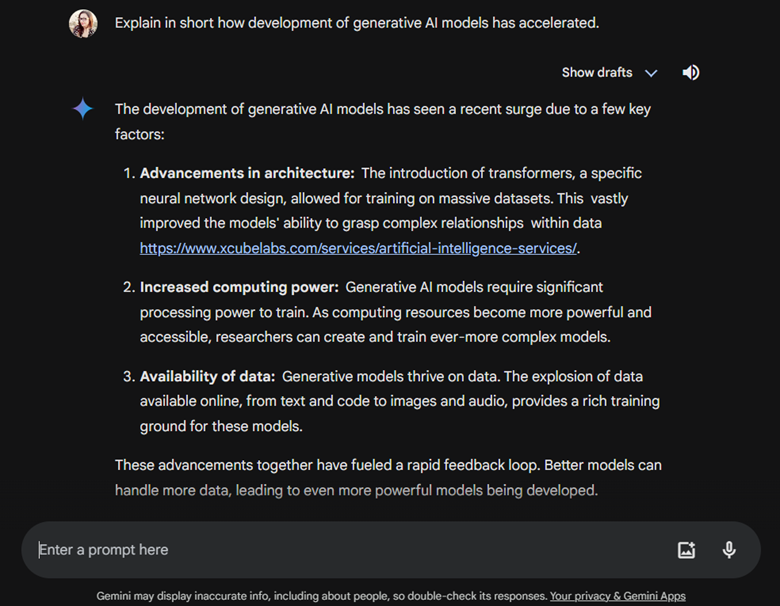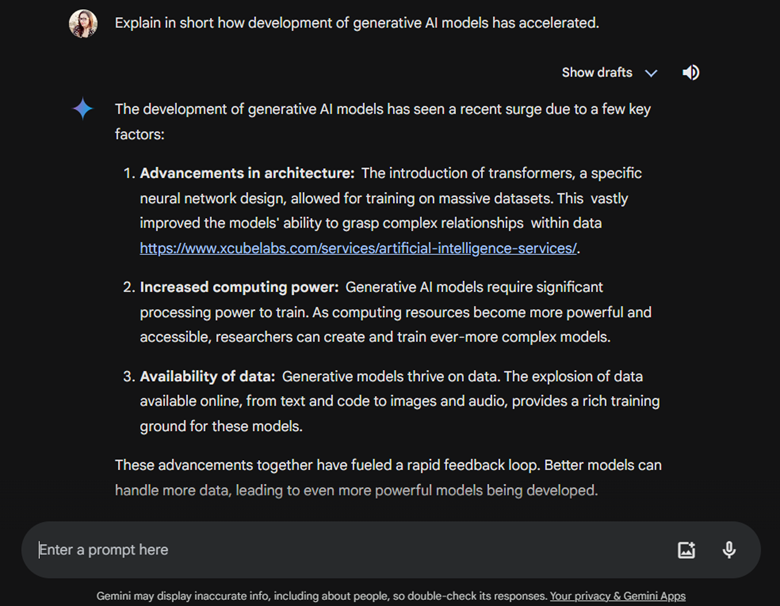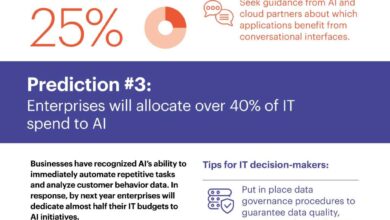Which Generative AI is better? Gemini vs. ChatGPT


The choice between Gemini and ChatGPT depends on the specific requirements and use cases. Ultimately, the better choice depends on the particular application and desired outcomes.
Presently, the projected market size for artificial intelligence is expected to reach a substantial US $305.90 billion by 2024. This trend extends to generative AI, where a survey indicates that 70% of business leaders are exploring its potential within their organizations. With increasing interest, the development of generative AI models has accelerated.
In late 2022, OpenAI released GPT-4, an amazing AI model. It became hugely popular, attracting over 100 million users in just two months, faster than apps like Instagram.
However, there were concerns. With no other major competitor and a high price tag, some feared OpenAI might control the entire market and slow down innovation. Just when it seemed OpenAI might win, Google stepped in with a brand new AI tool called Gemini, a true game changer.
Let’s find out more about Gemini and how it’s different from other AI models, especially ChatGPT.
Google Gemini
Gemini, a Google project, aims to develop advanced AI models that generate high-quality content like images, text, and music. Using large-scale neural networks and techniques such as Generative Adversarial Networks (GANs), Gemini produces diverse and realistic outputs across different domains.
What is the difference between Gemini Basic and Pro?
Gemini Basic offers standard capabilities for generating content across different domains, while Gemini Pro provides additional features and customization options. Gemini Pro may offer more advanced controls over the generated content, such as style transfer, fine-tuning, and higher resolution outputs.
See also: ChatGPT is Everywhere – But is AI Ready for Prime Time in Enterprise Tech?
OpenAI ChatGPT
ChatGPT, developed by OpenAI, is an AI model that excels at understanding and mimicking human-like speech. It’s been trained extensively on a vast amount of text data, allowing it to engage in conversations, provide answers, and generate text in various styles with remarkable fluency. Using the Transformer architecture as its backbone, ChatGPT effortlessly performs tasks such as translation and summarization, showcasing its versatility and proficiency in natural language processing.
Comparing Google’s Gemini and OpenAI’s ChatGPT and their different Generative AI approaches
Both Google DeepMind and OpenAI are pushing their boundaries of generative AI, a technology that uses patterns in training data to create new content. While both offer conversational AI tools (Bard for Google and ChatGPT for OpenAI), their latest models take different approaches.
OpenAI’s focus lies with large language models (LLMs) like ChatGPT, which excel at text-based interactions. Similarly, Google’s LaMDA model powered Bard. However, Google’s recent innovation, Gemini, represents a significant leap forward – it’s a large multimodal model (LMM).
Unlike traditional LLMs, LMMs can handle various input and output formats, including text, images, audio, and video. This “native multimodality” sets Gemini apart. It can directly process and generate different data types, unlike ChatGPT, which relies on separate models for tasks like speech recognition (Whisper) and image generation (DALL-E 2).
While OpenAI’s GPT-4 can interact with these modalities, it does so indirectly, converting speech to text and vice versa. Similarly, image generation involves text prompts fed to a separate model.
In essence, Gemini represents a more unified approach to generative AI, capable of seamlessly working across different data formats. This opens exciting possibilities for future applications that require a more comprehensive understanding of the world.
Comparison responses of ChatGPT vs. Gemini prompt
We asked ChatGPT 3.5 and Google Gemini the same prompts to see their responses. The results are as follows,
Prompt: “Explain in short how development of generative AI models has accelerated.”




Which is better: Gemini vs ChatGPT
The choice between Gemini and ChatGPT depends on the specific requirements and use cases. If the goal is to generate diverse content across different modalities, such as images, videos, and music, Gemini may be more suitable. On the other hand, if the focus is on natural language processing tasks and generating human-like text responses, ChatGPT would be a better option. Ultimately, the better choice depends on the particular application and desired outcomes.



